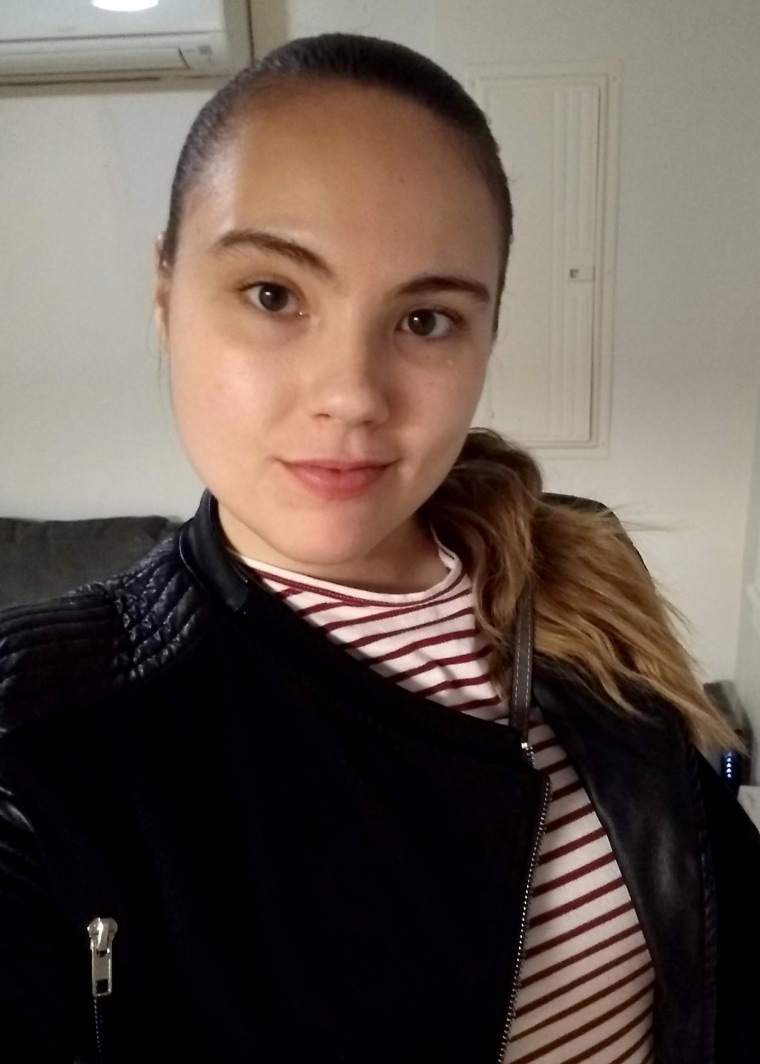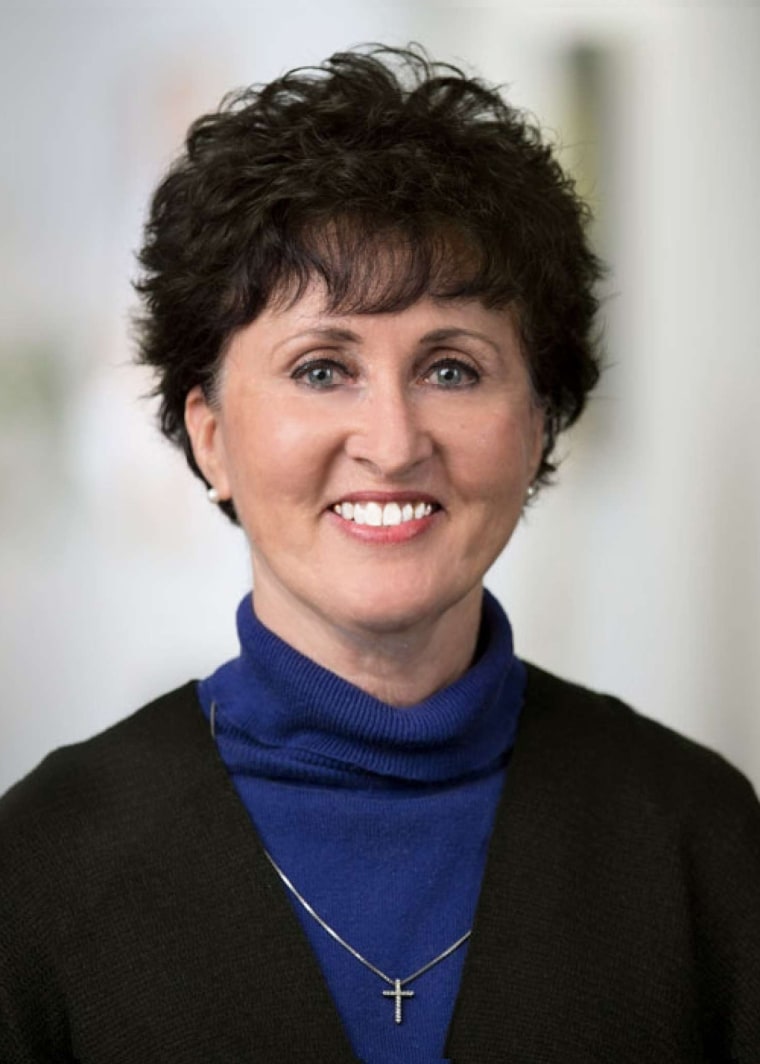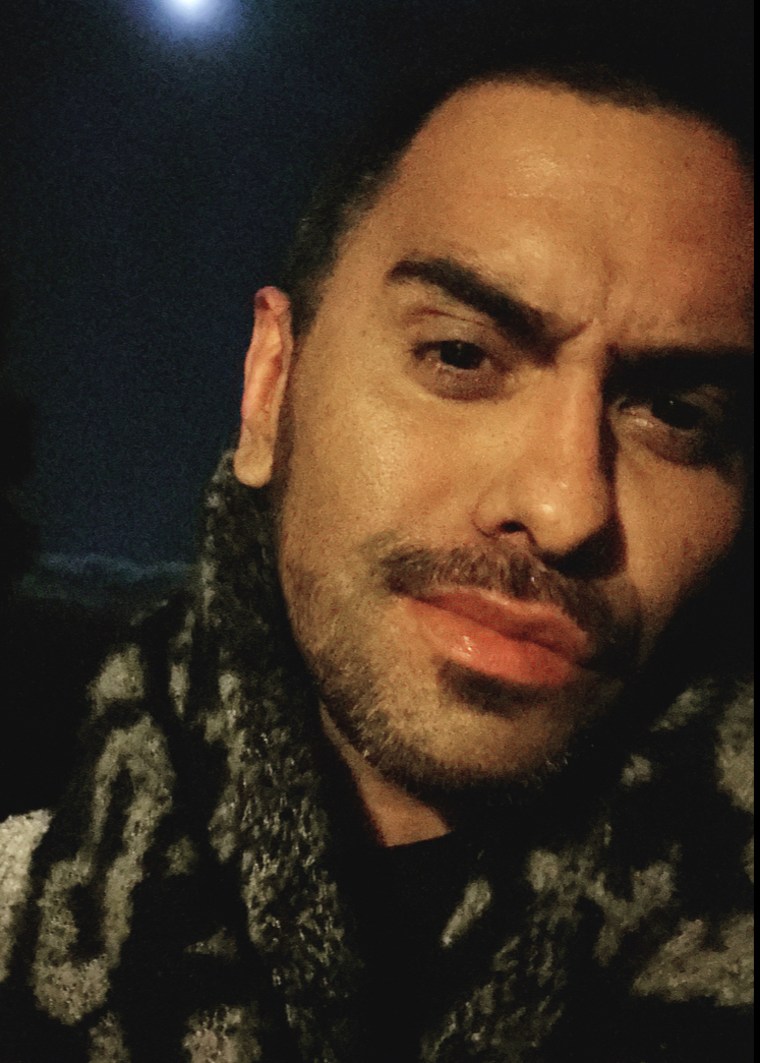Arizona legislator compares transgender people to farm animals
An Arizona state representative is facing an ethics complaint after he compared transgender people to farm animals at a Wednesday committee hearing.
The hearing was for House Bill 2725, which would require state identification documents to contain only a male or female gender marker. The bill pre-emptively bans nonbinary people, who are neither exclusively male nor female, from using gender-neutral X markers on their IDs, even though Arizona law doesn’t currently permit that.
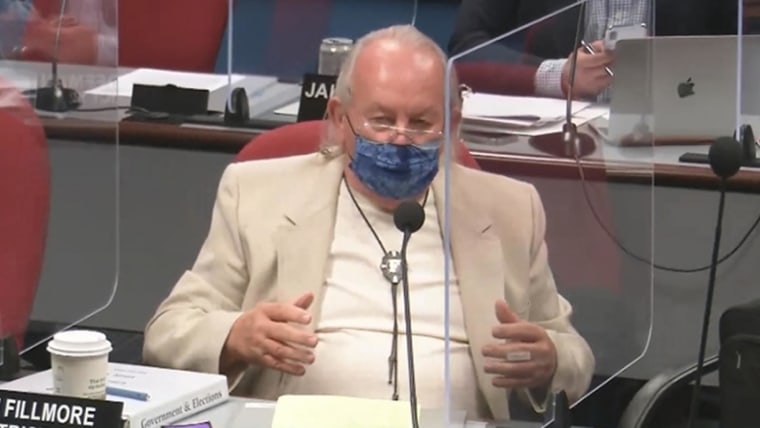
‘It’s dehumanizing’ Transgender rights advocate on Arizona bill limiting gender options
State Rep. John Fillmore, the bill’s sponsor, said during the hearing that he “proposed this bill just to give clarity in government documents and was hoping to avoid the whole gender identity issue on the gender dysphoria,” according to a video of the hearing.
“What’s going to happen when someday someone wakes up and they want to go to a far extreme and identify as a chicken or something, for crying out loud,” he added. “Where do we draw the line?”
Megan Mogan, who is the mom of a 15-year-old nonbinary child and testified against the bill Wednesday, said Fillmore’s comment was dehumanizing.
“I don’t think you have to be the parent of a nonbinary person, you can just be the parent of anyone, and if someone dehumanizes your child, it’s like one of the worst possible feelings you can have,” Mogan told NBC News on Friday.
She tweeted after the hearing, “Still shaking after an elected GOP state rep just compared my non-binary child to a barnyard animal.”https://platform.twitter.com/embed/Tweet.html?creatorScreenName=NBCNews&dnt=false&embedId=twitter-widget-0&frame=false&hideCard=false&hideThread=false&id=1359599151525203970&lang=en&origin=https%3A%2F%2Fwww.nbcnews.com%2Ffeature%2Fnbc-out%2Farizona-legislator-compares-transgender-people-farm-animals-n1257763&siteScreenName=NBCNews&theme=light&widgetsVersion=889aa01%3A1612811843556&width=550px
Riley Behrens, a Harvard University graduate student who was previously a Democratic campaign staffer in Arizona, called Fillmore’s “chicken” comment “disgusting.”
“We were all just in shock,” Behrens, who said he was texting some of the Democratic House members during the hearing, said. “It’s heartbreaking to be in a room and hear people talk about our community that way. … It’s not what we expect from an elected official and shouldn’t be tolerated.”
Behrens said he left the Capitol around 1 p.m. on Wednesday and returned with a notarized ethics complaint against Fillmore at 4:45 p.m.
“I wanted to make a statement,” Behrens said. “You’re not going to say this without some sort of repercussion or public statement back at you.”
Andrew Wilder, director of communications for the Arizona House’s Republican Majority Caucus, shared a statement Friday with NBC News on Fillmore’s behalf.
“The complaint is entirely without merit, and it’s rather unfortunate that some opponents of the bill have unfairly and grossly mischaracterized my comments at Wednesday’s hearing,” the statement read. “I invite people to listen to my actual remarks, which do not remotely match the distorted version critics have alleged.”
On Saturday morning, however, Fillmore emailed NBC News directly, calling the situation “silly and dangerous” and saying words “have consequences.”
“I believe this whole darn conversation is just childish silly,” he wrote. “When a person wants to change the meanings of words because of their ‘feelings’ how can a society have a reasonable discussion about anything if for instance they feel the word ‘blue’ is in fact ‘red’ to them, and then add the word ‘green’ to the color ‘yellow,’ now try to go have an intelligent conversation with an oil artistic painter.”
Behrens also filed a second complaint against Republican state Rep. Kevin Payne in which Behrens alleges Payne “continuously disrupted public testimony.” During Mogan’s testimony about her child, Behrens alleges Payne said, “So it doesn’t know who it is?”
“Referencing any person as ‘it,’ particularly a child, is discriminatory and cannot be tolerated,” Behrens’ complaint, which was shared with NBC News, stated. “By his actions, Representative Payne has engaged in conduct that compromises the character of himself, the integrity of the Arizona State House of Representatives, and shows a lack of respect for members of the LGBTQ+ community.”
Wilder told NBC News in an email, “Representative Payne has stated that he does not recall saying anything like what is alleged in the complaint, nor are such words by him heard in the committee hearing video – an important fact the complainant conceded Thursday to the Arizona Mirror.”
Behrens said Payne’s comment can’t be heard in the hearing video because they were made while Mogan was testifying, but Behrens said he heard them firsthand, as he was sitting about 10 feet away from Payne at the hearing.
Bridget Sharpe, the Arizona state director for the Human Rights Campaign, said she doesn’t think Fillmore “understands the gravity of what he said” or the effects the bill would have on nonbinary people.
“I truly don’t think he understands what this means for nonbinary Arizonans, because he doesn’t believe that, you know, nonbinary is a choice,” Sharpe said. “That’s very difficult to take in. I think that was very offensive. I was upset, mostly for the mothers that were in the Zoom room, and [Mogan] took the time to be vulnerable and testify, only to be met with that comment.”
Sharpe said she and some other advocates reached out to Fillmore’s office to offer him education on the impacts of his statement and the bill but that she hasn’t received a response.
HB 2725 is unnecessary, Sharpe said, because Arizona state law currently only permits people to use a male or female gender marker on their IDs. The bill “takes it a step further and writes it into statute, which is much harder to change down the line,” Sharpe said. “We believe this is cruel, because nonbinary folks should be given a chance at some point to be able to have that X gender marker on state documents including things like their driver’s licenses.”
Nineteen states and the District of Columbia currently offer nonbinary residents the option to use a gender-neutral “X” on IDs, in lieu of an “M” or “F,” according to Movement Advancement Project, an LGBTQ think tank.
Sharpe said Democratic state Sen. Rosanna Gabaldón has introduced a bill for the last few sessions that would allow nonbinary Arizonans to use an X marker on their IDs, but “so many times, bills like that do not even get hearings, essentially because Republicans feel it’s controversial,” Sharpe said.
Gabaldón introduced the measure, Senate Bill 1162, again in January, but it has not yet been given a hearing.
Mogan said a gender-neutral ID option would relieve her kid and others of “this constant threat of being outed, of being misgendered” in public settings, including those where they might be bullied or discriminated against.
“When you’re free from that constant level of anxiety, you can do other things like be a kid, or be happy,” she said.
Sharpe said she’s not sure whether HB 2725 will pass. It will go to the House Rules Committee next, and then it would move to the floor for discussion, which Sharpe said could happen as early as next week.
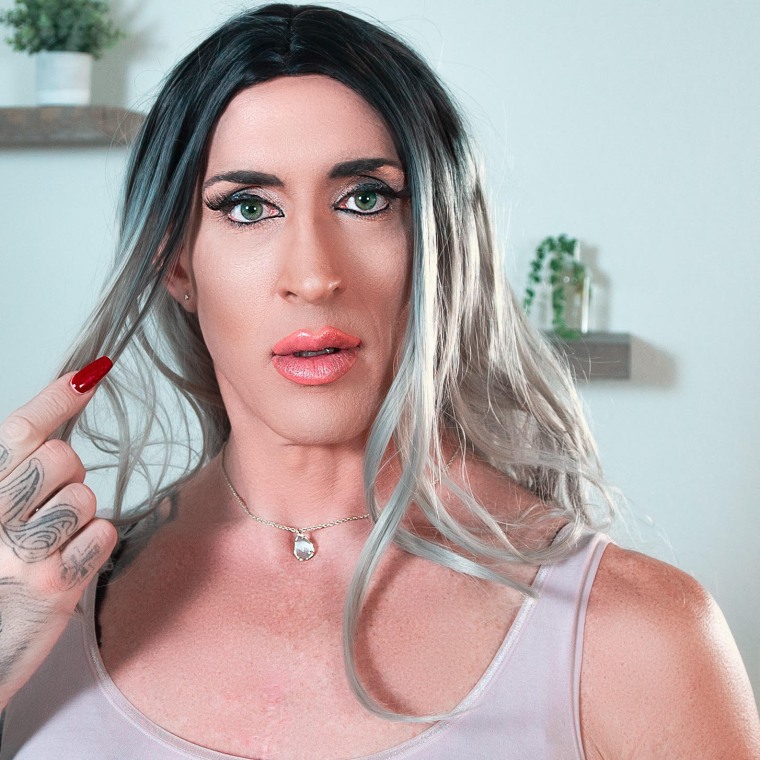
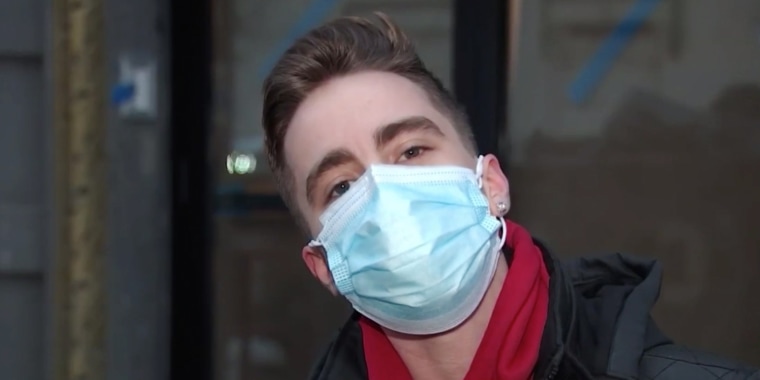
 Happy Valentine’s Day from all of us at Food For Thought. Thank you so much for your continued support! At FFT, we’re spreading the love by providing nurturing food to our neighbors in need. Will you join us?
Happy Valentine’s Day from all of us at Food For Thought. Thank you so much for your continued support! At FFT, we’re spreading the love by providing nurturing food to our neighbors in need. Will you join us?

 In the Food for Thought Club, we understand the importance and potential that a healthy and sustainable meal can have on our health, so we were intrigued and inspired by FFT’s core philosophy “Food is Medicine” and its mission statement “fostering health and healing with food and compassion.” We celebrate FFT’s philosophy of healing people through nutrition because our central goal at the Food for Thought club is to save the Earth through a plant-based diet. Since members of our club are conscious of what we eat and where our food comes from, many of us pursue a vegetarian lifestyle.
In the Food for Thought Club, we understand the importance and potential that a healthy and sustainable meal can have on our health, so we were intrigued and inspired by FFT’s core philosophy “Food is Medicine” and its mission statement “fostering health and healing with food and compassion.” We celebrate FFT’s philosophy of healing people through nutrition because our central goal at the Food for Thought club is to save the Earth through a plant-based diet. Since members of our club are conscious of what we eat and where our food comes from, many of us pursue a vegetarian lifestyle. Do you shop for groceries at Fircrest, FoodMaxx, Lucky, Olivers, Sonoma Market, or Petaluma Market? Register your phone number or grocery rewards card online with
Do you shop for groceries at Fircrest, FoodMaxx, Lucky, Olivers, Sonoma Market, or Petaluma Market? Register your phone number or grocery rewards card online with  Valentine’s Day often tempts us to indulge in sweet treats loaded with empty calories.
Valentine’s Day often tempts us to indulge in sweet treats loaded with empty calories.